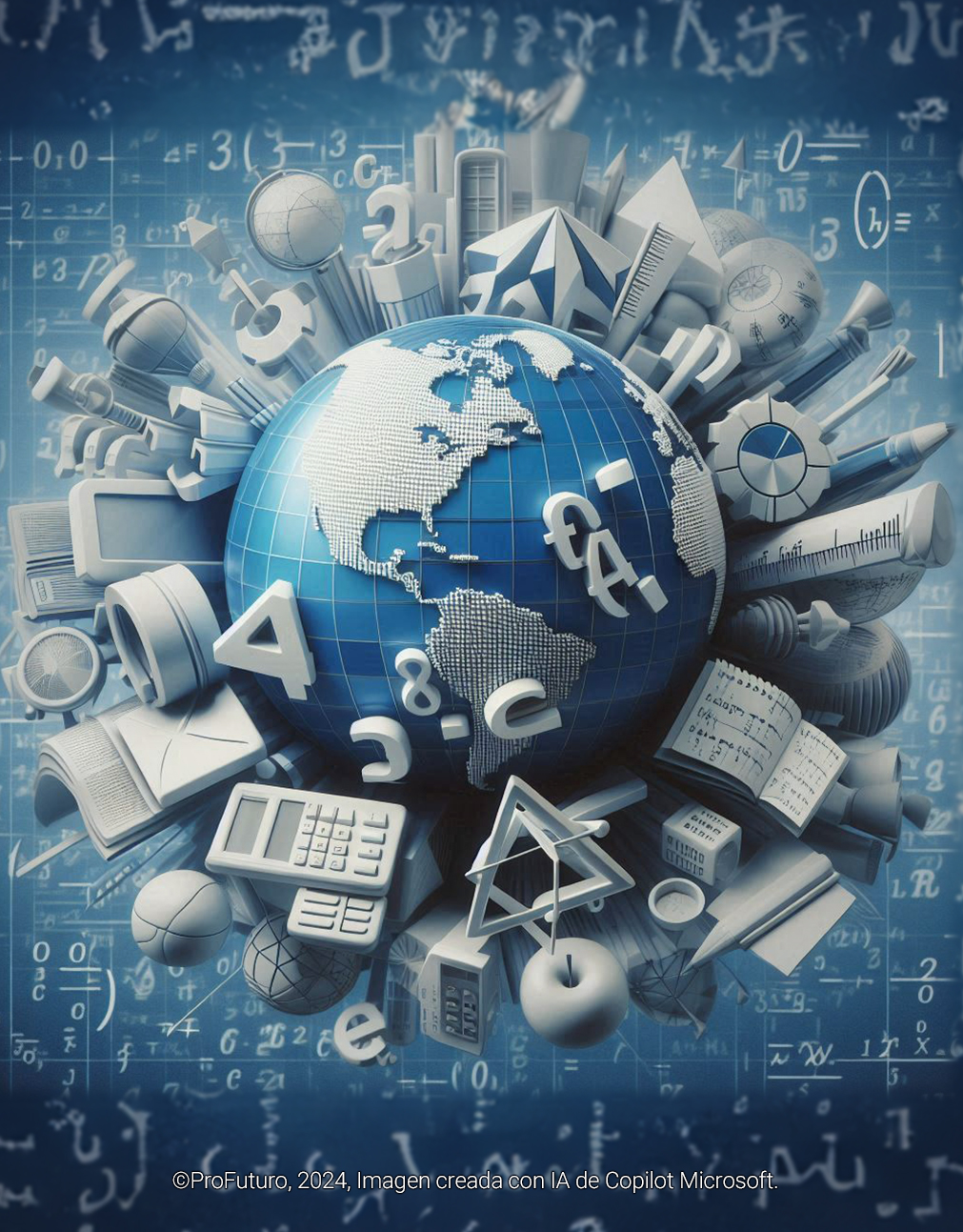Education in Latin America and the Caribbean is facing an unprecedented learning crisis. According to an IDB report, the region faces an unprecedent learning crisis: one in two students lacks basic reading skills, and three out of four fail to achieve essential math competencies. These figures, a reflection of a structurally unequal educational system, underscore not only learning gaps but also the urgent need for policies that transform education at its core.
Assessing student performance is crucial to identifying system deficiencies, designing more effective interventions, and directing resources to those who need them most. However, this effort faces significant challenges, including a lack of psychometric specialists, inadequate infrastructure, and evaluation systems that fail to reflect the complexities of learning in diverse socioeconomic contexts.
In a region where investment in education is limited and access to essential resources such as digital technology remains unequal, measuring learning outcomes is vital to improving educational quality and reducing inequities that perpetuate social inequality. This article delves into the main findings of the IDB report, highlighting how learning assessments can become the cornerstone of a fairer and more effective education system in Latin America and the Caribbean.
Barriers to Access

What do we face? What challenges limit equitable access to quality education in Latin America and the Caribbean? The 2024 IDB report reveals stark inequalities in the allocation of educational resources—both financial and physical—that directly affect student learning, particularly in low-income communities.
Las disparidades en la inversión que cada país realiza en educación es uno de los más flagrantes. Así, si acercamos la lupa a los promedios, vemos cómo, a pesar d
One of the most glaring disparities is the variation in educational investment across countries. On average, the region allocates 4.2% of its GDP to education, close to the OECD average of 5%. However, this investment varies significantly between nations. While countries like Bolivia (7.7%) and Costa Rica (6.3%) meet or exceed UNESCO’s recommended levels (4-6%), others like Haiti (1%) and Trinidad and Tobago (2.9%) fall far short. This disparity is also reflected in per-student spending: while Costa Rica invests $4,910 PPP per primary school student, Ecuador allocates just $1,213—less than one-third of the OECD average of $6,700 PPP.
Access to adequate educational infrastructure and technology also remains a significant challenge. According to the report, one in ten students in Latin America lacks access to a computer at school, and two in ten lack internet connectivity. These contrasts are even starker compared to OECD countries, where access to such tools is nearly universal.
Inequities in Digital Access
Within the region, disparities are evident. In countries like Paraguay and Guatemala, over half of the students lack internet access in their schools, whereas in Uruguay, Chile, and Jamaica, nearly all students are connected. Socioeconomic status further exacerbates these disparities: the poorest students are up to three times less likely to have access to computers and the internet than their wealthier peers.
These inequalities in investment and access to physical and digital resources directly impact educational outcomes. Students from more vulnerable socioeconomic backgrounds face greater challenges in acquiring basic competencies, as evidenced by the 2022 PISA results. While overall, students in the region lag behind their OECD peers by the equivalent of five years of schooling—rising to seven years in Paraguay, the Dominican Republic, and El Salvador—the gap widens for the most vulnerable students. Those in the lowest income quintile face up to eight years of lag compared to the OECD average. In countries like Brazil, Peru, and Uruguay, learning gaps between the richest and poorest students can reach five years of schooling.
This alarming learning crisis raises a fundamental question: How can educational systems address the deep inequalities and learning deficiencies revealed? According to the IDB report, the answer begins with measurement. Without precise and reliable data, it is impossible to diagnose problems clearly, design appropriate solutions, and evaluate their impact over time.
Evaluar el rendimiento de los estudiantes permite identificar lagunas en el sistema, diseñar intervenciones más efectivas y orientar los recursos hacia quienes más los necesitan.
What is not measured cannot be improved
Learning assessments, such as PISA or national evaluations, serve as tools to identify the severity of the educational crisis and break it down into key factors like socioeconomic level, gender, or geographic location. These assessments:
- Identify gaps: Data reveal that the poorest students are up to eight years behind the OECD average. Without these figures, inequalities remain invisible and unaddressed in educational policies.
- Monitor policy impact: Evaluations determine whether interventions, such as investments in technology, are closing gaps or need adjustment.
- Prioritize resources: In resource-constrained contexts, assessments guide investment to ensure resources reach the schools and students who need them most.
Challenges in Measuring Learning
Efforts to measure learning in Latin America and the Caribbean face significant barriers:
- Lack of psychometric specialists: The scarcity of professionals skilled in designing, implementing, and analyzing learning assessments limits the region’s ability to develop robust systems tailored to local contexts.
- Inadequate infrastructure: Many countries lack resources to implement digital or standardized evaluations, reducing their quality and capacity to capture relevant real-time data.
- Pandemic impact: COVID-19 disrupted many national and regional evaluations, leaving gaps in recent data needed to monitor educational progress and formulate recovery strategies.
- Limited focus on socioemotional competencies: Current assessments emphasize math and language skills but need to include indicators for socioemotional abilities, civic values, and technological competencies.
Recommendations for Strengthening Learning Assessments
The IDB report highlights several key recommendations to enhance measurement systems and promote equity:
- Strengthen national evaluation systems: Invest in reliable, sustainable, and context-appropriate systems. This includes training specialists in educational measurement and ensuring regular, standardized evaluations even during crises.
- Prioritize equity in educational policies: Use assessments to identify and address educational inequalities by segmenting results and targeting disadvantaged communities for resource allocation.
- Incorporate educational technology: Develop digital evaluations and expand access to technology, ensuring schools, especially in rural or marginalized areas, have the tools to implement assessments effectively.
- Broaden evaluation scope: Measure socioemotional skills, life skills, technological competencies, and civic values to provide a comprehensive view of student needs.
- Promote transparency and data use: Ensure evaluation results are accessible to all educational stakeholders, including teachers, parents, and communities, to foster accountability and trust.
Un sistema de evaluación educativo sólido debe cumplir tres funciones fundamentales: informar la política educativa, mejorar las prácticas pedagógicas y promover la equidad.
Learning Assessments: A Catalyst for Change
Learning assessments are more than technical tools—they are catalysts for change. They inform areas needing improvement, such as teacher training, equitable resource distribution, and curriculum relevance. Without solid evaluation systems, governments lack the data to design effective policies that close learning gaps.
The challenge for the region is to make learning assessments a central pillar of educational strategies. This requires not only resources but also a cultural shift that values measurement as a tool for improvement, not just grading. Building strong evaluation systems is a crucial investment for ensuring a more equitable and effective educational future in Latin America and the Caribbean.
References
Arias Ortiz, E.; Dueñas, X.; Giambruno, C., & López, A. (2024). The State of Education in Latin America and the Caribbean 2024: Measuring Learning. Inter-American Development Bank. http://dx.doi.org/10.18235/0013171






